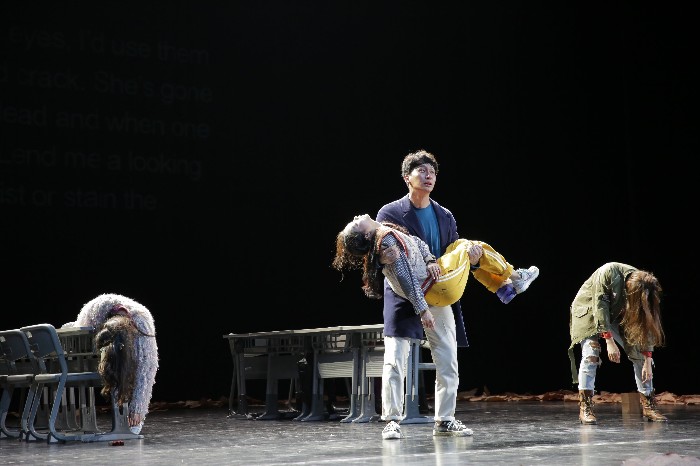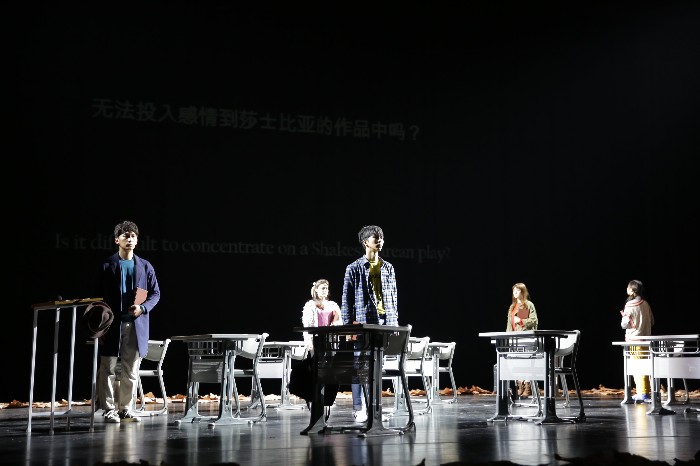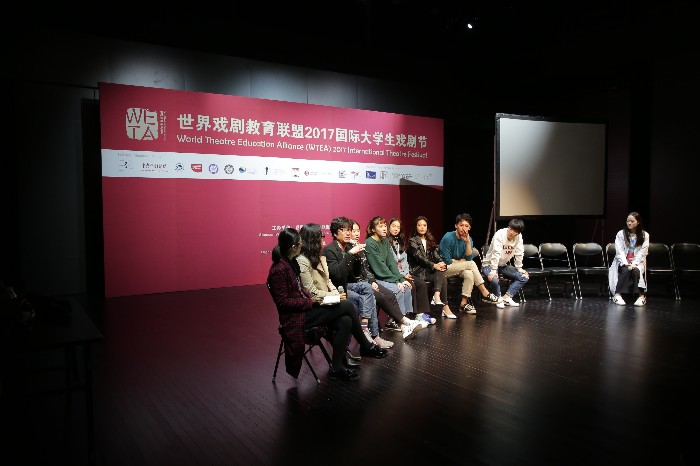King Lear full of wit and humor by Theatre Department of Chuang-Ang University, Korea
On the afternoon of October 22nd, 2017, the performance L(R)EAR, Based on “Tolstoy on Shakespeare” was performed by Theatre Department of Chuang-Ang University, Korea at the Proscenium Stage Theatre in Changping Campus of the Central Academy of Drama, China. The performers presented their ideas, thinking and confusion about Tolstoy’s comment on Shakespeare in a form of "Tolstoy's Course". They interacted with the audience and even boldly queried Shakespeare's work--"King Lear". Such Lecture Performance was successfully performed by the students from Theatre Department of Chuang-Ang University, Korea. Their brilliant performance won praise from the audience.

The play began with a question - “Is Shakespeare a great playwriter?” and then was further discussed with an argument - “Do Shakespeare's works really deserve to be praised?” Director Kwon Ryeong-Ah, an undergraduate student, expressed her own exploration of the work’s theme at macro level by looking for the logical flaws in King Lear’s plots and characters. Besides, she asked the audience a precise and creative question, "Does what we think correct is really correct?”
The 60-minute play was performed with spirit and dash, serious and facetious as well as well-balanced tension and relaxation at the same time. Lights and music were used appropriately, so as to control the drama rhythm and explain the stage lines of the story-within-a-story. Through the stage interpretation of Tolstoy’s comment on Shakespeare, the performers put forward their confusions and thoughts on many important scenes of the original work King Lear in terms of "events, speech and themes".With respect to play’s events, characters’ credulousness on impossible things proves falsity of the work, such as Lear's credulity to eldest daughter and second daughter's flatteries rather than youngest daughter’s candid words as well as sword fighting scene between Edmund and Edgar. With respect to the characters’ speeches, it seems that the exchange of the two characters’ speeches doesn’t matter much in the scene of Lear and Edgar monologues. The audience can’t tell who is the main master of a specific line because Shakespeare's characters seem to speak in the same way. With respect to the play’s theme, students concluded that such ending and theme in the last scene are not in conformity with moral standards when Cordelia and King Lear finally came to their death. Thus, the performers raised a question, "What is the deserved ending of the good and the evil?" Besides, they continued to explore the issue of whether a drama should meet moral standards or not.

The young creation team of King Lear from the Theatre Department of Chuang-Ang University, Korea brought us a spectacular play with strongly youthful flair, they led the audience to explore many think-worthy issues. Is the plot of Shakespeare’s work fake? Can the audience involve their emotions in Shakespeare's work? Are Shakespeare's lines exaggerated and artistic? Should the literature be in conformity to moral standards? Is a literary work favored by the audience really excellent works or vice versa?Is there any evidence or demonstration proving that a piece of work is a masterpiece?

We can’t help thinking a lot of questions. Should literature have a religious nature? How to deal with the relationship between art and morality? How to judge a work? Is there a standard accepted by everyone to prove a great works? Audience, do you think Shakespeare is great?
